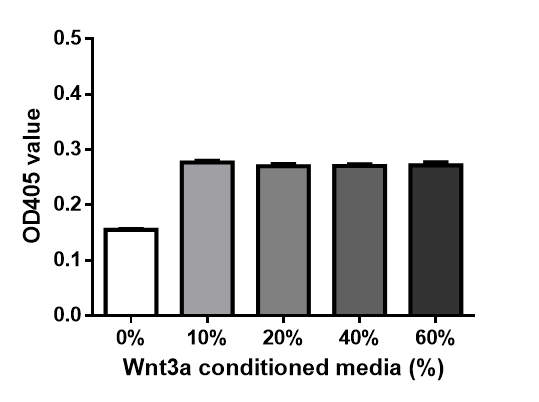| Background | Wnt-3a is a critical protein in embryonic development, tissue maintenance, and disease, with significant applications in organoid research. It regulates essential cell processes like proliferation and differentiation, playing a key role in forming body structures and organs during embryonic development. In adults, it maintains stem cells and aids tissue repair. Dysregulation of Wnt-3a is linked to diseases such as cancer and neurodegeneration. Understanding its function is crucial for developing therapies. Moreover, Wnt-3a's involvement in signaling pathways has led to its widespread use in organoid cultures, mimicking organ structures in vitro and advancing research in regenerative medicine and disease modeling. Wnt-3a's multifaceted roles make it a pivotal focus in both basic and clinical research. |
| Synonyms | WNT3A |
| Uniprot ID | P56704 |
| Molecular Weight | N/A |
| Expression System | Mus musculus L Wnt-3A cell line |
| Activity | Measured by its ability to induce alkaline phosphatase production by MC3T3‑E1 mouse preosteoblast cells. |
| Protein Sequence | A DNA sequence encoding Human Wnt-3a Protein(#P56704) (Ser19-Lys352) was expressed. |
| Protein Tag | Tag Free |
| Form | Liquid. If you have any concerns or special requirements, please confirm with us. |
| Application | Cell Culture |
| Stability & Storage | Upon receipt, store it immediately at -20°C or -80°C for 1 year. When ready to use, thaw the conditioned medium at 37°C. Thawed medium is stable for 2 weeks at 2-8℃. It is recommended that the product should be aliquoted for optimal storage. Avoid repeated freeze-thaw cycles. |
| Shipping | Blue Ice |

|
| Measured by its ability to induce alkaline phosphatase production by MC3T3‑E1 mouse preosteoblast cells. |
 No references are available
No references are available
 Follow Us
Follow Us